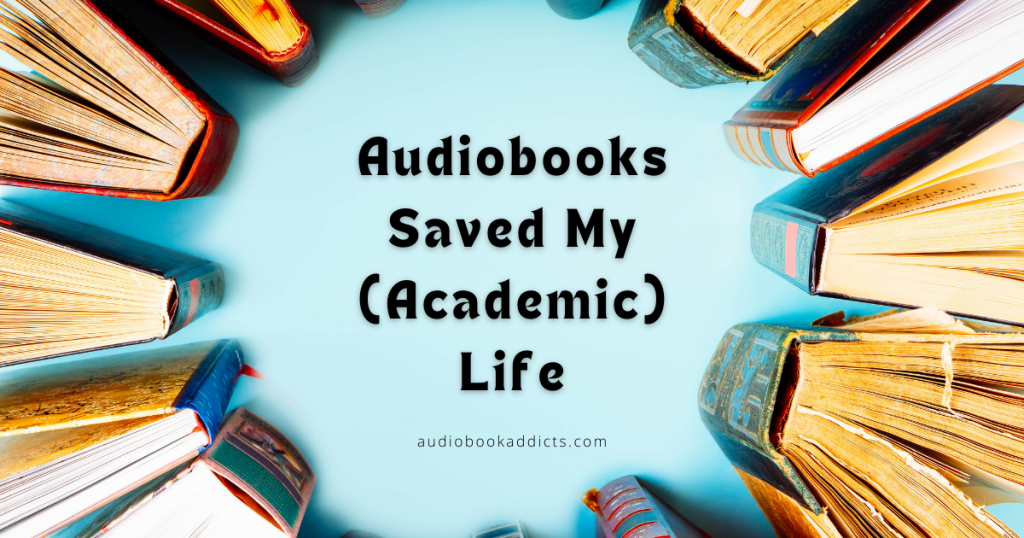
Academic reading was always a struggle for me; I’m not a fast reader, and rapid-fire weekly deadlines coming from every class only made things worse. So when I started my master’s degree while working full time I knew I needed a strong time management system. This is when everything started to change.
By my second semester, I was spending most of my time at work, studying, or commuting between the two. I looked at the syllabus that first week and saw the reading list: The Death and Life of the Great American School System by Diane Ravitch, Pedagogy of the Oppressed by Paulo Friere, and The Republic by Plato.
That evening I sat in my studio apartment scrolling through Amazon for used copies of the books I needed when I saw that little Audible logo. It felt wrong, like cheating, but it also felt liberating. Without another thought, I added the books to my Audible library.
Now with audiobooks on my side, I could begin my weekly ‘readings’ as I walked to the office, taking mental notes and adding digital ‘bookmarks’ until I arrived. Once I pulled my headphones off, I’d jot down some noteworthy tidbits and add the general timestamp when I remembered. This process made it easy for me to refer back to the text whether I was preparing for a seminar or writing an essay.
Suddenly I had time to relax away from work and school and that boost to my mental wellbeing felt great. The pressure of going to school full time while holding down a full-time job felt manageable. It was still really hard, but I can’t stress enough how valuable it was to gain back the hours that would have otherwise gone to reading and re-reading Plato.
As time marched on, I honed and perfected my study secret. I started taking advantage of whisper-sync technology, using the Kindle search function to keep my notes next to the text for easy reference. I could do a quick search of the ebook and find a specific quote while still digesting the text in a way that worked.
For some, this may sound like an over-complication, and maybe it is. But it worked for me, I even started to enjoy my classes. There are still lots of people who claim a physical book is somehow superior, especially when it comes to school, but I used this method all the way through my PhD studies, so I don’t buy that argument.
The availability of audiobooks was a lot smaller when I was using my Audible credits on books by ancient philosophers but I’ve watched it grow to the furthest reaches of non-fiction. And the practice may still feel a bit controversial, but I highly recommend it to any student with a lengthy commute, an already-long list of responsibilities, or who would really just benefit from a more accessible option whether it’s a health condition or otherwise. Audiobooks make education more accessible, and that can only be a good thing.
